If you give away your power, there will always be someone there to take it. Over the past few years, I've been working on myself. I've been diving deep and doing a lot of digging around in my deep psyche and subconscious. And I've come to one conclusion: I'm not here to be your bitch. I have journeyed to my own personal underworld and come face to face with my most deeply held fears. I have identified my own negative and limiting beliefs and faced the harsh truth of my lack of self-love and self-worth. I reopened all of the old wounds and scrubbed them clean. It hasn't been fun or easy. It's been messy. Really messy. My thing, formally, is astrology-specifically life and energy coaching through the tool of astrology. I see the "story" that I have carried echoed plainly in the symbols of my natal chart. Saturn, the ruler of Capricorn, the sign of my seventh house of intimate relationships expresses through, sits on top of my Venus, (both in my first house of self and identity, which is expressed through the energetic prism of Cancer, Capricorn's and Saturn's exact opposite energy). Venus represents resources and relationships, but by way of our value of ourselves-our self-worth and self-love. That signature in my natal chart means "other," and specifically intimate partner, is sitting on top of my self-worth. In life, it meant that I had some serious lessons to learn around boundaries and staying in my power, and that meant one thing: an epic battle with Saturn for my self-worth and inner authority - the battle to reclaim my throne.  The Astrology of Not Being Someone Else's Bitch Here’s the scenario. It's really about reclaiming one's power and inner authority. Saturn on Venus in Cancer and the first house shows that self-worth is debilitated, and this is likely from some kind of early experience of being limited or restricted by an authority (resulting in devaluation of self), and this means that expression of the self has then been masked, repressed, suppressed, restricted, or in some way altered, to fit in with this authority that caused the experience of the expression of the authentic self being “wrong”. With the self-worth debilitated and carrying the idea that there is something inherently wrong with self, one then puts the "authority" (Saturn) outside of oneself, making herself dependent on others for security. In this case, Saturn’s sign Capricorn, representing this security, is ruling the seventh house of intimate relationships in the natal chart-the power is given away to the significant other in exchange for the lacking sense of security. Now consider all of this in the context of the law of attraction. It goes like this: if we are willing to give away our power, there will always be someone there to take it. .
If this Venus does her work, evolving in consciousness to a place of self-worth, having healed herself so that she now values and loves herself and is no longer betraying herself and compromising her integrity, then she has taken back her power and knows her value. She is her own authority. She knows now that if she is not continually claiming that place of power and authority and responsibility within herself, someone will take it. She realizes that if she doesn’t occupy her throne, there are all kinds of people who will be more than happy to walk in and set up their own rulership. Equally importantly, she knows that when she does not occupy her throne those are exactly the types of people she will attract. She is not here to be anyone's bitch and never was. But she had to learn the lesson in the depth and detail that she did, because she has important work to do around self-worth and becoming her own authority. Like the great Sumerian Inanna, she had to descend to her depths to be reborn whole unto herself and reclaim her throne as the unshakable sovereign ruler of her realm. That's the only reason Lord of Karma (Saturn) would be there over Venus in the first house/Cancer causing forced growth and the need to fight for self-esteem and expression. Examples of Archetypal Energies and Reclaiming Feminine Power and Expression There is a deeper archetypal layer to this running throughout our myths, our religions, our cultures, and our collective consciousness. The study of astrology leads to the study of mythology. What we might understand as Venus or Aphrodite today is quite the watered down version from the not-to-be-fucked-with ancient goddess energies. As the Sumerian myth "Inanna's Descent" teaches us, (and this describes the astrological cycle of Venus' retrograde, as Inanna was Venus' predecessor), we cannot fully claim our power unless we've confronted the shadow self. We don't stand in our power if we keep trying to disown the darker or maybe not-so-socially-acceptable parts of ourselves. That betrays our truth and compromises our power. And Inanna certainly wasn't going to be someone's bitch. She journeyed to the underworld to confront her sister who was queen of the underworld (her shadow self) and in her compromised state was attacked by her sister and hung on meat hooks and left for dead. Her hand maiden (higher self) saved her. But the underworld had rules and before she would be allowed to leave she had to choose someone to take her place. Upon finding out that her consort had taken over her thrown and was not one bit interested in her well-being, she chose him and sent him to the underworld, reclaiming her thrown and her sovereignty. If we work with the negative and limiting beliefs we carry, we find the wounds where those beliefs were formed which also mark the chinks in our armor where others can trick us into giving away our power. Our armor is always our self-esteem and self-love. If we carry a negative belief about ourselves, like "too much" or "not worthy" or "not lovable", then there is a chink in that armor. Now we are "not enough" as we innately are and therefore we look outside of ourselves for whatever that thing is we think we need. Our shadow, unattended to, has turned a larger-than-life monster. It has opened an access point that would allow someone else to invade our homeland and steal our throne. Manipulation is part of human nature, because fear is part of human nature. We try to control what we fear. If we are fearful, we want power, which we think we will achieve by control, and fear is something we know so well, that we can innately try to gain that control over another by playing on their fear. We've seen this principle at work time and time again.
Author Nicki Scully says, "As she prowled the land she saw needless human suffering. She saw how cosmic law was defiled. She loosed her wrath upon the people of Earth and the ground was littered with spent and bleeding bodies. With her newly ignited taste for human blood, the carnage knew no bounds, and Ra grieved as he looked upon the waste laid by Sekhmet." There are two important details here. 1) There's a warning about the consequences of rage going unchecked. While anger and rage serve their purpose of our ability to assert ourselves and protect ourselves, they can be extremely destructive. But, 2) this paints a picture of Ra calling on Sekhmet, a powerful goddess, to help him in his time of need. She acts out of righteous rage, after being asked for her help. Consider this powerful ancient feminine energy who holds within her both the compassionate healer archetype AND the powerful female warrior archetype. And now consider the idea we frequently encounter that women are not supposed to express anger. (And for that matter "big boys don't cry" and "children should be seen and not heard"....) The next part of the story is that Ra resorts to "trickery" to end her rampage. He colors beer with mandrake root and pomegranate juice so it looks like blood and because she is so blood-thirsty, Sekhmet drinks it until intoxicated and turns into the more docile archetype of Hathor. (So in her all-powerful divinity, she is also this gullible?) Scully goes on to say, "This tale omits mention of Sekhmet's boundless compassion, her exceptional healing gifts, her power, and her freedom. "The premise that Sekhmet's rage can be tempered through intoxication and unconsciousness, or sleep, illustrates how the current worldwide paradigm needs changing. No longer can we afford to retreat into unconsciousness, or have our freedom tricked out of us. Our personal demons are part of ourselves, and they, too, are divine." ~Nicki Scully Ra in fear of Sekhmet's power, tricks her (by intoxication) into being more docile so he can control her. Applying that to the idea of manipulating through fear, can you think of times in history where one group has held power over another group through this trickery of manipulating fear? Do you see this dynamic in your personal history or of those around you? If you choose to remain unconscious and don't face your fears and limiting beliefs and shore up the armor of self-esteem, then you will fall victim to this sort of "trickery" and end up giving away your power, which means you're giving away your freedom. Do not betray yourself by looking outside of yourself for security, love or validation. Sekhmet was not here to be anyone's bitch, yet she was still manipulated into submission. What about Eve? In the book, When God was a Woman, by Merlin Stone, she writes, "As a child, I was told that Eve had been made from Adam's rib, brought into being to be his companion and helpmate, to keep him from being lonely. As if this assignment of permanent second mate, never to be captain, was not oppressive enough to my future plans as a developing member of society, I next learned that Eve was considered to be foolishly gullible. My elders explained that she had been easily tricked by the promises of the perfidious serpent. She defied God and provoked Adam to do the same, thus ruining a good thing - the previously blissful life in the Garden of Eden. Why Adam himself was never though to be equally as foolish was apparently never worth discussing. But identifying with Eve, who was presented as the symbol of all women, the blame was in some mysterious way mine - and God, viewing the whole affair as my fault, chose to punish me by decreeing, "I will greatly multiply your pain in childbearing; in pain you shall bring forth children, yet your desire shall be for your husband and he shall rule over you" (Gen. 3:16)." She continues, "So even as a young girl I was taught that, because of Eve, when I grew up I was to bear my children in pain and suffering. As if this was not a sufficient penalty, instead of receiving compassion, sympathy or admiring respect for my courage, I was to experience this pain with guilt, the sin of my wrongdoing laid heavily upon me as punishment for simply being a woman, a daughter of Eve. To make matters worse, I was also supposed to accept the idea that men, as symbolized by Adam, in order to prevent any further foolishness on my part, were presented with the right to control me - to rule over me. According to the omnipotent male deity, whose righteousness and wisdom I was expected to admire and respect with a reverent awe, men were far wiser than women. Thus my penitent, submissive position as a female was firmly established by page three of the nearly one thousand pages of the Judeo-Christian Bible." "The lessons learned in the Garden of Eden", she says, "were impressed upon us over and over again. Man was created first. Woman was made for man. Only man was made in God's image. According to the Bible, and those who accepted it as the divine word, the male god favored men and had indeed designed them as naturally superior. Even now I cannot help wondering how many times those passages from the New Testament were read from the authoritative position of a Sunday pulpit or from the family Bible that had been pulled down from the shelf by father or husband - and a pious woman listened to: Let the woman learn in silence with all subjection. But I suffer not a woman to teach or to usurp authority over the man, but to be in silence. For Adam was first formed and then Eve, and Adam was not deceived, but the woman being deceived was in the transgression....(I Timothy 2:11-14) For the man is not of the woman, but the woman of the man. Let the women keep silence in the churches, for it is not permitted unto them to speak; but they are commanded to be under obedience, so saith the law. And if they learn anything, let them ask their husbands at home; for it is a shame for women to speak in the church. (I Corinthians 11:3, 7, 9)" Stone then goes on to point out in her book that, "Ashtoreth, the despised 'pagan' deity of the Old Testament was (despite the efforts of biblical scribes to disguise her identity by repeatedly using the masculine gender) actually Astarte - the Great Goddess, as She was known in Canaan, the Near Eastern Queen of Heaven. Those heathen idol worshipers of the Bible had been praying to a woman god - elsewhere knows as Innin, Inanna, Nana, Nut, Anat, Anahita, Istar, Isis, Au Set, Ishara, Asherah, Ashtart, Attoret, Attar and Hathor...." Saturn in astrology is about responsibility. When we are young, we are not mature enough to be in our own authority - it is something we step into with time and experience. Then, with maturity, we come into a different relationship with Saturn i our natal chart - one of becoming our own authority. This is the lesson Saturn teaches: we each must take responsibility for ourselves, stepping into our own inner authority. Saturn in our chart reminds us that "authority" will always be in our lives - the question is, will that energy be moving through us, or will we experience it as coming down on us from the outside, or through "other?'
It is up to us as individuals to love and value ourselves to ensure there are no chinks in our armor and we are never tempted to believe that there is something outside of us that we must trade our integrity for. We must become our own inner authority, seated solidly upon the thrones of our hearts, sovereign rulers of our realms. From this place at our center, we can then evaluate what beliefs we are aligned with and what beliefs do not ring true for us, based on our values. From this place of self-worth and inner authority, we create the loving boundaries that protect all that we wish to nurture and grow. It is only from this place upon the thrones of our hearts, that we can say lovingly, in our full authority, "I am NOT here to be your bitch." However, the best part is, once we are in that place, we will never have need to say it. We will simply live it, with every breath, every moment of every day, as naturally the sun rises every morning and the moon illuminates the night sky. Comments are closed.
|
SIGN UP BELOW to stay connected & receive my bimonthly new & full moon guides, plus any important astro events in between as well as special announcement.
Join us in our private women's-only Facebook group: "SOULCRAFT: For Women Ready to Create Love & Life on Their Terms."
Archives
April 2024
Categories |
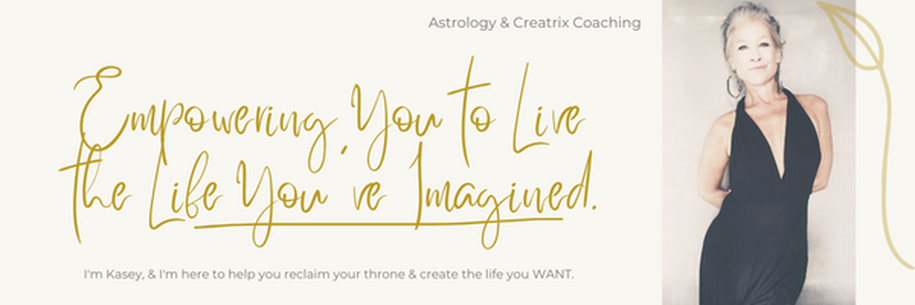
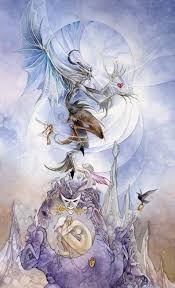
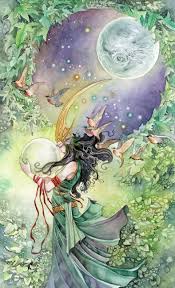
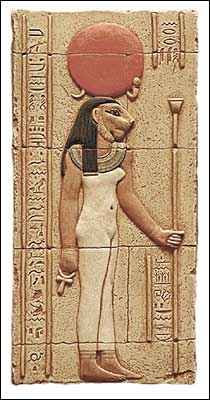
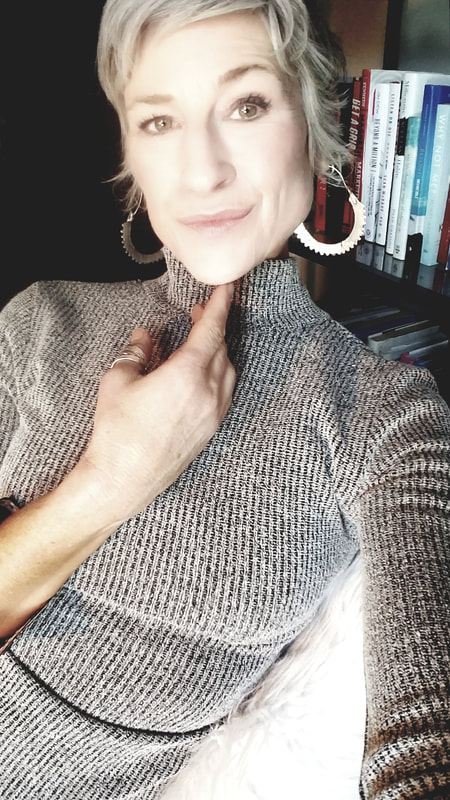

 RSS Feed
RSS Feed